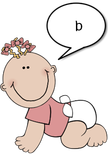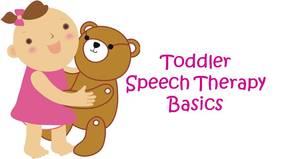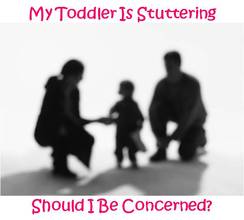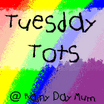
I've decided to offer the freebie via my blog. Although I'm a little late getting it together (my family and I are in the process of buying a house now that we're settled in Mississippi after moving here in December of last year), I thought late was better than never, right?
The freebie focuses on the early developing speech sound /b/. Toddlers should be able to say this sound by the age of 2 to 3. Not only does this lesson focus on the /b/ sound, it also targets vocabulary and toddler language skills. The activities for the /b/ sound were taken from my book, Talking With Toddlers - 52 Tips to Boost Speech and Language Skills. Be sure to check out my book if you're looking for more ways to stimulate your toddler's speech and language skills!
Here's your freebie:
| early_speech_sound_b.pdf |
| initial_b_words.pdf |





 RSS Feed
RSS Feed



